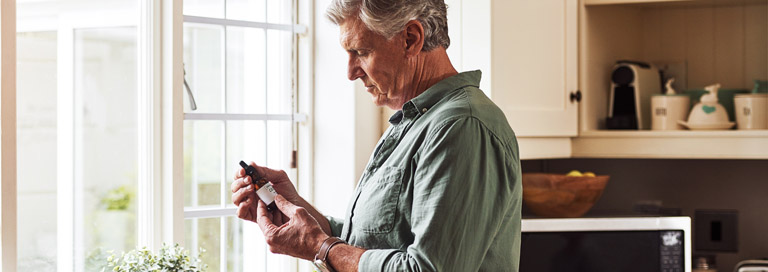Whether it was losing a job, having no access to a doctor, or lockdowns that kept you isolated inside your house for months… pretty much everyone was negatively impacted by Covid for the last two years.
But Covid had another devastating effect that health experts are just beginning to recognize…
It made the “shadow pandemic” of antibiotic-resistant infections much worse.
Let me explain…
According to a recent study, more than half of Covid patients were automatically given at least one antibiotic when admitted to the hospital – even before a lab test could confirm whether or not they had a bacterial infection.
Over a third of these patients were given two, three, or more antibiotics during their hospital stay.
It turns out that 70% of Covid patients were treated with an unnecessary antibiotic.1 But less than 20% had a bacterial infection.
And this dramatic increase in non-necessary antibiotic use allowed drug-resistant superbugs more opportunity than ever to evolve…
This is much scarier than Covid ever could be.
Every 15 minutes, one person in the U.S. dies from an infection that used to be treatable with antibiotics. That’s 35,000 deaths every year. If we don’t act at once, drug-resistant infections could kill 10 million people worldwide by 2050.2
For decades, antibiotics were handed out like candy at the first sign of a cold or sniffle…
After a while, this overuse caused them to lose their power to fight infections. And the more they’re prescribed, the worse the problem gets.
And if nothing changes, disease minor events like cuts and diarrhea could turn deadly. Deaths from a simple urinary tract infection could become an everyday occurrence. That’s what happened to actress Tanya Roberts last year.
We can’t count on pharmaceutical companies to save us. Big Pharma decided antibiotics just aren’t profitable enough
.To protect our families, we need to return to the natural cures our ancestors used for centuries.
And don’t be scared that they won’t work to protect you from infection…
A recent study found that herbal antibiotic remedies treat bacterial overgrowth more effectively than chemical antibiotics.3
I’ve recommended honey, garlic, and curcumin to treat infections.
Research shows honey can inhibit more than 60 bacteria, including antibiotic-resistant Staphylococcus aureus (MRSA).4 Garlic can treat salmonella, E. coli, and tuberculosis.5 Curcumin kills MRSA and E. coli and helps heal wounds twice as fast.6
But now I’ve added CBD to my natural medicine chest. Studies prove CBD can effectively kill antibiotic-resistant superbugs – specifically gram-negative bacteria.
These bacteria are one of the most significant public health problems in the world due. Gram-negative is responsible for food poisoning, pneumonia, urinary tract infections, meningitis, sepsis, gonorrhea, and gastroenteritis. Even the bubonic plague that wiped out 50% of Europe’s population in the 14th century was a gram-negative bacteria.
The CBD study, published in Communications Biology, is being hailed as a medical breakthrough worldwide. This research could lead to the first new antibiotic treatment in more than 60 years.
Gram-negative bacteria have a tough outer membrane that acts as an additional line of defense. And this makes it harder for traditional antibiotic drugs to penetrate.
But the cannabidiol in CBD kills bacteria by breaking through this outer cell membrane.
This study comes on the heels of earlier research published in 2020. That study found combining CBD with traditional antibiotics makes antibiotic medications much more effective at destroying gram-positive bacteria like staph and strep.
When the researchers treated the bacteria with the combination, three things happened:
-
- The bacteria could no longer divide normally.
- There was less cell division.
- The bacterial membrane became unstable.
This combination punch means less antibiotic drug is needed to achieve the same effect. This will lead to fewer drug-resistant bacteria in the long run.
Safe, Easy, and Effective CBD-Honey Salve
To treat cuts and wounds and prevent infection, I recommend making a salve using Manuka honey and CBD. Here’s an easy recipe for a paste I’ve started using on my family and myself:
Ingredients:
- 2 grams of CBD isolate
- ½ cup virgin coconut oil
- ½ ounce beeswax pellets
- 2 Tbsp Manuka honey
Directions:
- Place coconut oil and beeswax into a glass measuring cup. Set in a pan of water and simmer until melted, about 20 minutes. Remove from heat and pour into a small 2-ounce jar.
- Add the CBD distillate and Manuka honey. Stir until thoroughly combined.
- Store in a cool, dark place.
The next time you have a cut, scrape, burn, or open infection, use the salve instead of antibiotic ointment. Spread a thin layer on the wound and cover it with gauze or a bandage.
Change the dressing once daily to prevent the gauze from sticking to the wound.
To Your Good Health,

Al Sears, MD, CNS
References:
1. Kubin C, et al. Antimicrobial stewardship perspectives from a New York City hospital during the COVID-19 pandemic: Challenges and opportunities. AJHP. 2021;78(8):743-750.
2. Solly M. “Drug-resistant infections could kill 10 million people annually by 2050.” https://www.smithsonianmag.com/smart-news/drug-resistant-infections-could-kill-10-million-annually-2050-180972079/#:~:text=If%20dramatic%20action%20isn’t,million%20people%20into%20extreme%20poverty.
3. Chedid V, et al. “Herbal therapy is equivalent to rifaximin for the treatment of small intestinal bacterial overgrowth.” Glob Adv Health Med. 2014 May; 3(3): 16-24.
4. Goharshenasan P, et al. “Topical application of honey on surgical wounds: a randomized clinical trial.” Forsch Komplementmed. 2016;23(1):12-5.
5. Bayan L, et al. “Garlic: a review of potential therapeutic effects.” Avicenna J Phytomed. 2014 Jan-Feb; 4(1): 1–14.
6. Panchatcharam M. et al. “Curcumin improves wound healing by modulating collagen and decreasing reactive oxygen species.” Mol Cell Biochem. 2006;290:87-96.

